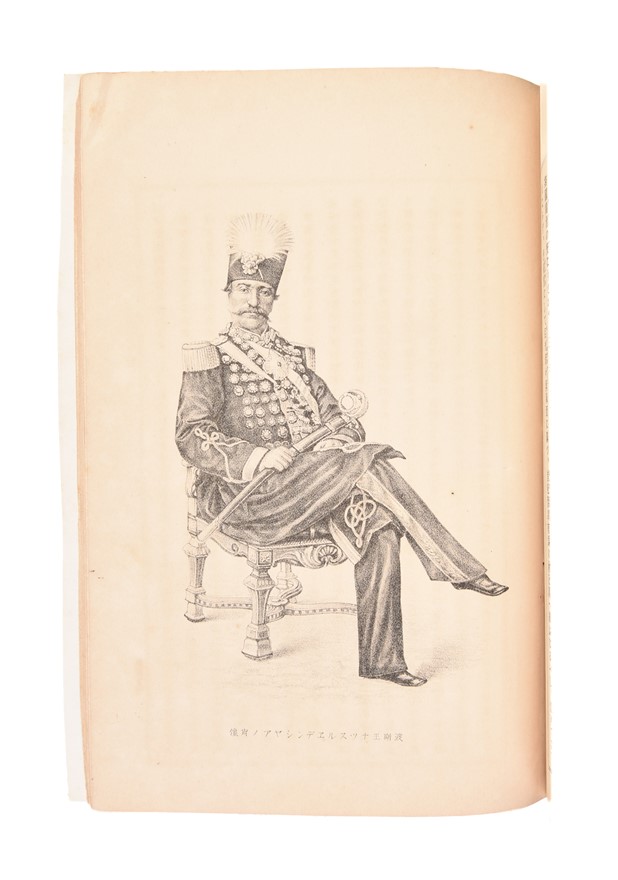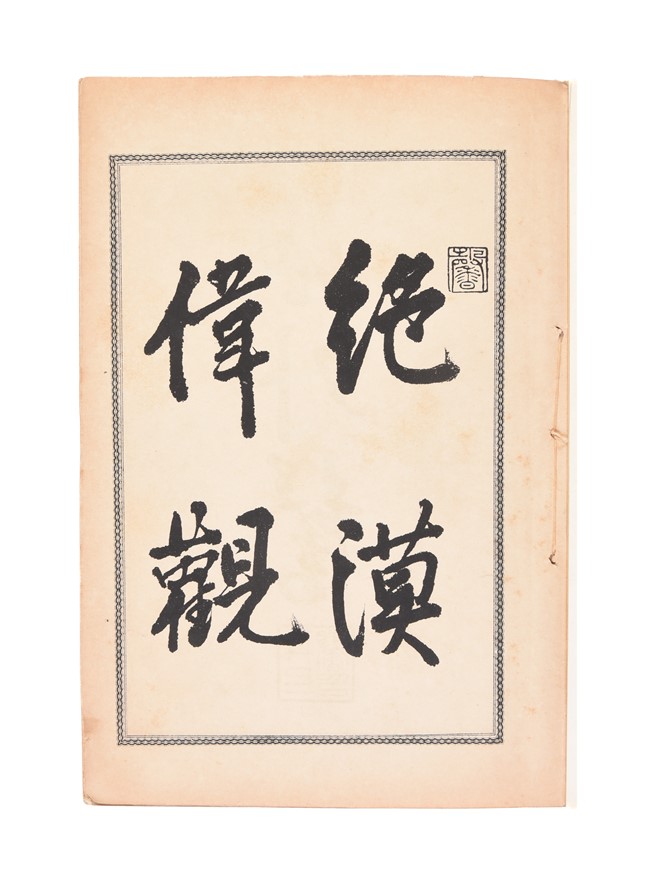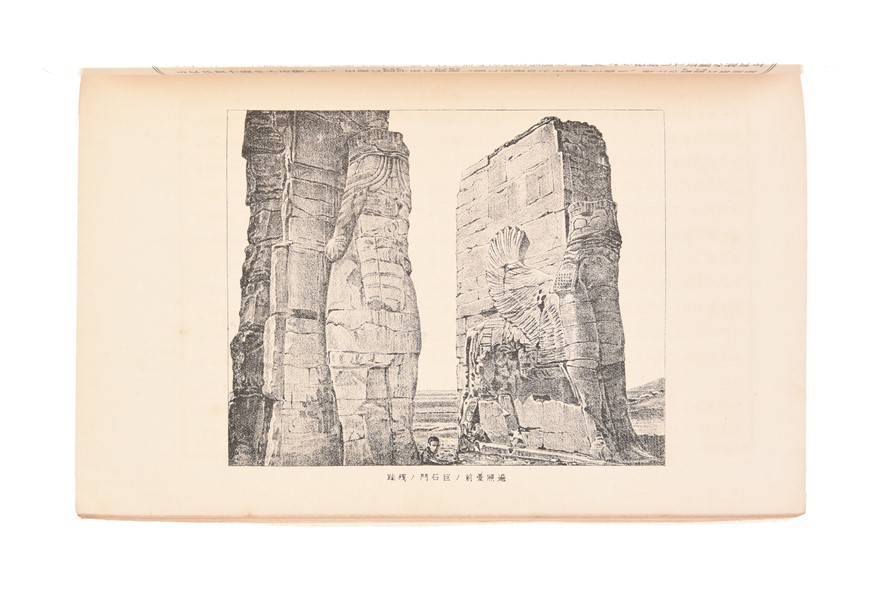Perusha no tabi - Kaikyo tanken [Travels in Persia - An expedition to the Muslim World].
YOSHIDA Masaharu (1894].)
£1500.00 [First Edition]
Please contact us in advance if you would like to view this book at our Curzon Street shop.
The first Japanese delegation to Iran
First edition. Lacking title, and a folding map. Includes: 4 calligraphic frontispieces on 2 leaves, 6 lithograph plates (incl. a portrait of the Shah). 8vo. Bound in plain modern flexible boards, slightly browned (due to paper quality). [iv], 2, 6, 191, [iv](ads.)pp. Tokyo, Hakubunkan, dated: Meiji 27 [i.e.
In 1880 Japan sent a small delegation to Persia in order to open diplomatic and trade relations between the two countries. Yoshida Masaharu (1852-1921), a high-ranking official of Ministry of Foreign Affairs was accompanied by Furukawa Noriyoshi (1849-1921) of the General Staff Office, and five merchants. They were the first Japanese to enter Persia. The account describes their journey by boat to the Persian Gulf (Basra), travelling up the Tigris to Baghdad (at the time part of the Ottoman Empire) and from there by caravan to Tehran, where he stayed for three months. It was a gruelling journey via the cities (ancient and modern) of Isfahan, Shiraz and Persepolis. They were ill-prepared for such a journey during the hottest season of the year and suffered from a lack of appropriate dress, clean water and the occasional attacks by bandits.
In Tehran, they gained an audience with the reformist Shah Naser al-Din (1831-1896) which involved a diplomatic incident when Yoshida Masaharu refused to take off his shoes before the meeting. They nevertheless obtained permission to trade. An important part of the mission was to gather intelligence about the intentions and influence of the Russian as well as the British Empire in the Middle East and Central Asia. On their return, they travelled through the Russian Caucasus regions to the Black Sea before taking a boat to Istanbul. This book became the most important source of information on Qajar Persia and the Muslim world in general and it formed the basic tenets of Japanese foreign policy in the region. It introduces many aspects of Persian culture, history, and religion, which was virtually unknown to the Japanese at that time.
Extremely rare. Only two copies in OCLC (Waseda & NDL).
Stock Code: 247898






